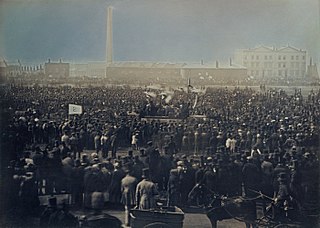
Chartism was a working-class movement for political reform in the United Kingdom that erupted from 1838 to 1857 and was strongest in 1839, 1842 and 1848. It took its name from the People's Charter of 1838 and was a national protest movement, with particular strongholds of support in Northern England, the East Midlands, the Staffordshire Potteries, the Black Country and the South Wales Valleys, where working people depended on single industries and were subject to wild swings in economic activity. Chartism was less strong in places, such as Bristol, that had more diversified economies. The movement was fiercely opposed by government authorities, who finally suppressed it.

Feargus Edward O'Connor was an Irish Chartist leader and advocate of the Land Plan, which sought to provide smallholdings for the labouring classes. A highly charismatic figure, O'Connor was admired for his energy and oratory, but was criticised for alleged egotism. His newspaper Northern Star (1837–1852) was widely read among workers, becoming the voice of the Chartist movement.
Owenism is the utopian socialist philosophy of 19th-century social reformer Robert Owen and his followers and successors, who are known as Owenites. Owenism aimed for radical reform of society and is considered a forerunner of the cooperative movement. The Owenite movement undertook several experiments in the establishment of utopian communities organized according to communitarian and cooperative principles. One of the best known of these efforts, which were largely unsuccessful, was the project at New Harmony, Indiana, which started in 1825 and was abandoned by 1829. Owenism is also closely associated with the development of the British trade union movement, and with the spread of the Mechanics' Institute movement.

William Lovett was a British activist and leader of the Chartist political movement. He was one of the leading London-based artisan radicals of his generation.
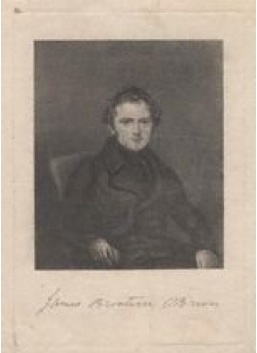
James Bronterre O'Brien was an Irish Chartist leader, reformer and journalist.

Henry Hetherington was an English printer, bookseller, publisher and newspaper proprietor who campaigned for social justice, a free press, universal suffrage and religious freethought. Together with his close associates, William Lovett, John Cleave and James Watson, he was a leading member of numerous co-operative and radical groups, including the Owenite British Association for the Promotion of Co-operative Knowledge, the National Union of the Working Classes and the London Working Men's Association. As proprietor of The Poor Man's Guardian he played a major role in the "War of the Unstamped" and was imprisoned three times for refusing to pay newspaper stamp duty. He was a leader of the "moral force" wing of the Chartist movement and a supporter of pro-democracy movements in other countries. His name is included on the Reformers' Memorial in Kensal Green Cemetery.
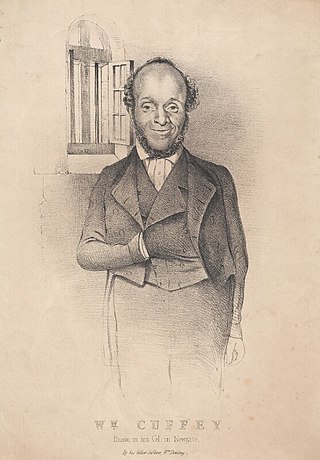
William Cuffay was a Chartist leader in early Victorian London.

George Howell was an English trade unionist and reform campaigner and a Lib-Lab politician, who sat in the House of Commons from 1885 to 1895.
Monmouth Boroughs was a parliamentary constituency consisting of several towns in Monmouthshire. It returned one Member of Parliament (MP) to the House of Commons of the Parliaments of England, Great Britain, and finally the United Kingdom; until 1832 the constituency was known simply as Monmouth, though it included other "contributory boroughs".
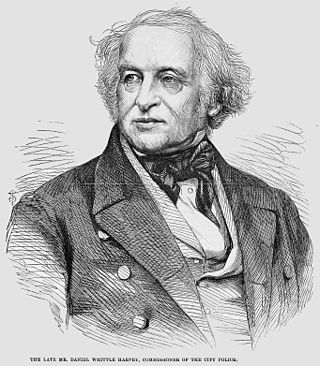
Daniel Whittle Harvey was a Radical English politician who founded The Sunday Times newspaper and was the first Commissioner of the City of London Police.
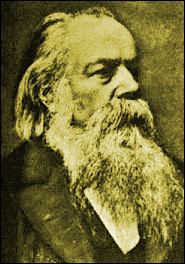
Henry Vincent was active in the formation of early Working Men's Associations in Britain, a popular Chartist leader, brilliant and gifted public orator, prospective but ultimately unsuccessful Victorian member of parliament, and later an anti-slavery campaigner.
John Cleave was a British, London based Chartist leader, a printer and newspaper publisher.
John Ireland Blackburne was a British Conservative politician.
John Jaffray was a London bookbinder who was active in the early Chartist movement and who assembled a large collection of literature and notes relating to the bookbinding trade. He arrived in London in about 1836. Jaffray was a member of the committee of the London Working Men's Association and a signatory to The People's Charter 1836, an important charter calling for greater political rights for the working classes that presaged the more well known People's Charter of 1838.

The Reform movement in Upper Canada was a political movement in British North America in the mid-19th century.

Socialism in the United Kingdom is thought to stretch back to the 19th century from roots arising in the aftermath of the English Civil War. Notions of socialism in Great Britain have taken many different forms from the utopian philanthropism of Robert Owen through to the reformist electoral project enshrined in the birth of the Labour Party that was founded in 1900.
Chartism originated in Wales in Carmarthen under the influence of Hugh Williams, a solicitor and radical reformer. Williams claimed he "got up the first radical meeting in south Wales" in the autumn of 1836 when he founded Carmarthen Working Men's Association. This followed on from the foundation the previous year of the London Working Men's Association by William Lovett and Henry Hetherington, Hetherington was a friend of Hugh Williams and is likely to have influenced his activities in south Wales. The People's Charter, embodying six points, was published in May 1838, with an address by Lovett and Hetherington. It became the focus of widespread meetings in support of its objectives throughout Britain. The People's Charter was later published in Welsh increasing the movement's appeal in Welsh-speaking areas. Chartism in Wales reached its climax in November 1839 with the Newport Rising and subsequent treason trial of Chartist leaders.

Taxes on knowledge was a slogan defining an extended British campaign against duties and taxes on newspapers, their advertising content, and the paper they were printed on. The paper tax was early identified as an issue: "A tax upon Paper, is a tax upon Knowledge" is a saying attributed to Alexander Adam (1741–1809), a Scottish headmaster.
Jeremiah Yates was an active Chartist who served a one-year prison sentence for bringing workers out on strike during the 1842 Pottery Riots in England.
The National Charter Association(NCA) (1840-1958) was formed on July 20, 1840, in a conference chaired by James Leach, of twenty three Chartist delegates in Manchester.












